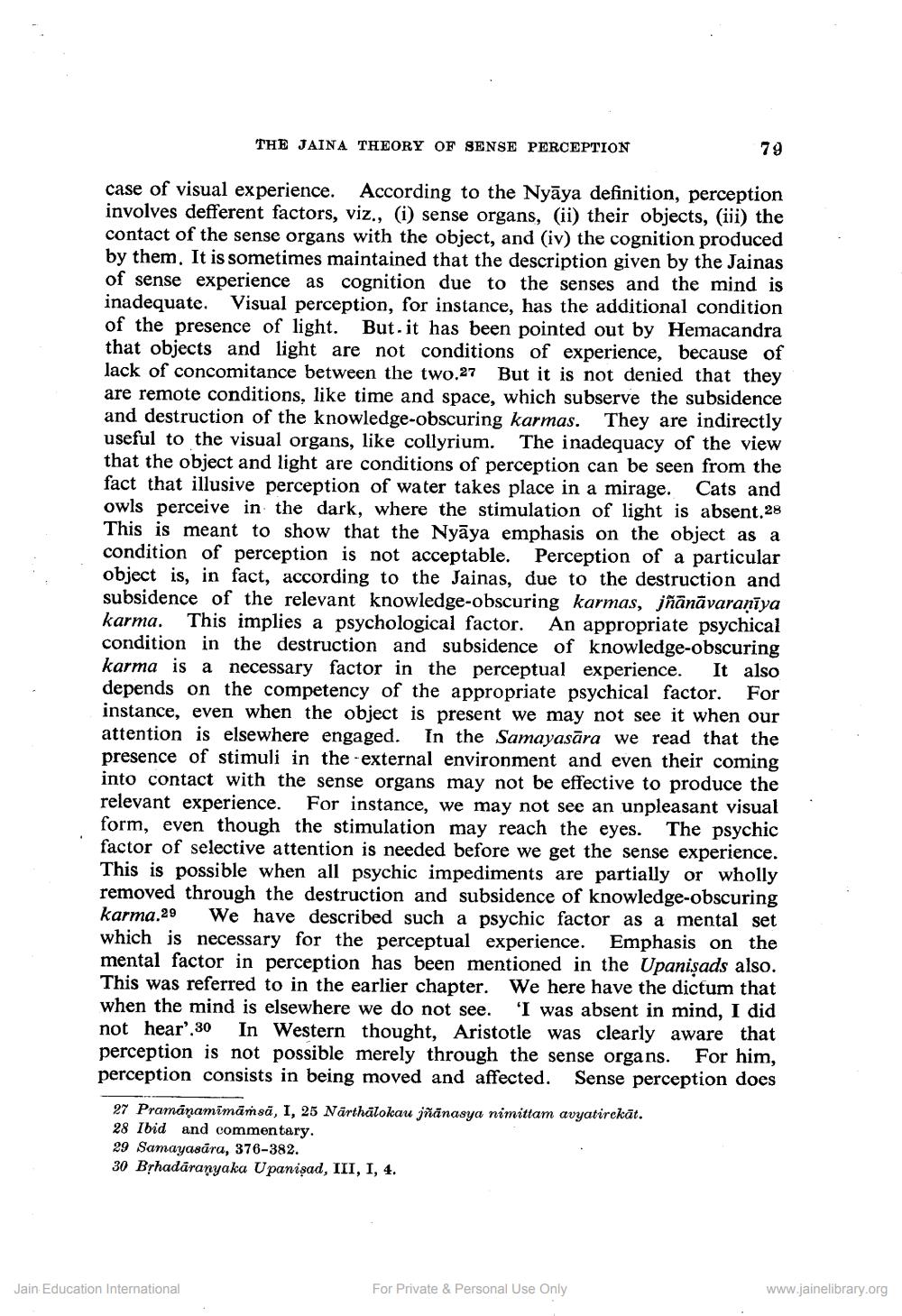________________
THE JAINA THEORY OF SENSE PERCEPTION
case of visual experience. According to the Nyaya definition, perception involves defferent factors, viz., (i) sense organs, (ii) their objects, (iii) the contact of the sense organs with the object, and (iv) the cognition produced by them. It is sometimes maintained that the description given by the Jainas of sense experience as cognition due to the senses and the mind is inadequate. Visual perception, for instance, has the additional condition of the presence of light. But it has been pointed out by Hemacandra that objects and light are not conditions of experience, because of lack of concomitance between the two.27 But it is not denied that they are remote conditions, like time and space, which subserve the subsidence and destruction of the knowledge-obscuring karmas. They are indirectly useful to the visual organs, like collyrium. The inadequacy of the view that the object and light are conditions of perception can be seen from the fact that illusive perception of water takes place in a mirage. Cats and owls perceive in the dark, where the stimulation of light is absent.28 This is meant to show that the Nyaya emphasis on the object as a condition of perception is not acceptable. Perception of a particular object is, in fact, according to the Jainas, due to the destruction and subsidence of the relevant knowledge-obscuring karmas, jñānāvaraṇīya karma. This implies a psychological factor. An appropriate psychical condition in the destruction and subsidence of knowledge-obscuring karma is a necessary factor in the perceptual experience. It also depends on the competency of the appropriate psychical factor. For instance, even when the object is present we may not see it when our attention is elsewhere engaged. In the Samayasara we read that the presence of stimuli in the external environment and even their coming into contact with the sense organs may not be effective to produce the relevant experience. For instance, we may not see an unpleasant visual form, even though the stimulation may reach the eyes. The psychic factor of selective attention is needed before we get the sense experience. This is possible when all psychic impediments are partially or wholly removed through the destruction and subsidence of knowledge-obscuring karma.29 We have described such a psychic factor as a mental set which is necessary for the perceptual experience. Emphasis on the mental factor in perception has been mentioned in the Upanisads also. This was referred to in the earlier chapter. We here have the dictum that when the mind is elsewhere we do not see. 'I was absent in mind, I did not hear',30 In Western thought, Aristotle was clearly aware that perception is not possible merely through the sense organs. For him, perception consists in being moved and affected. Sense perception does
27 Pramanamimämsä, 1, 25 Närthalokau jñānasya nimittam avyatirekat. 28 Ibid and commentary.
29 Samayasara, 376-382.
30 Brhadaranyaka Upanisad, III, I, 4.
Jain Education International
79
For Private & Personal Use Only
www.jainelibrary.org




